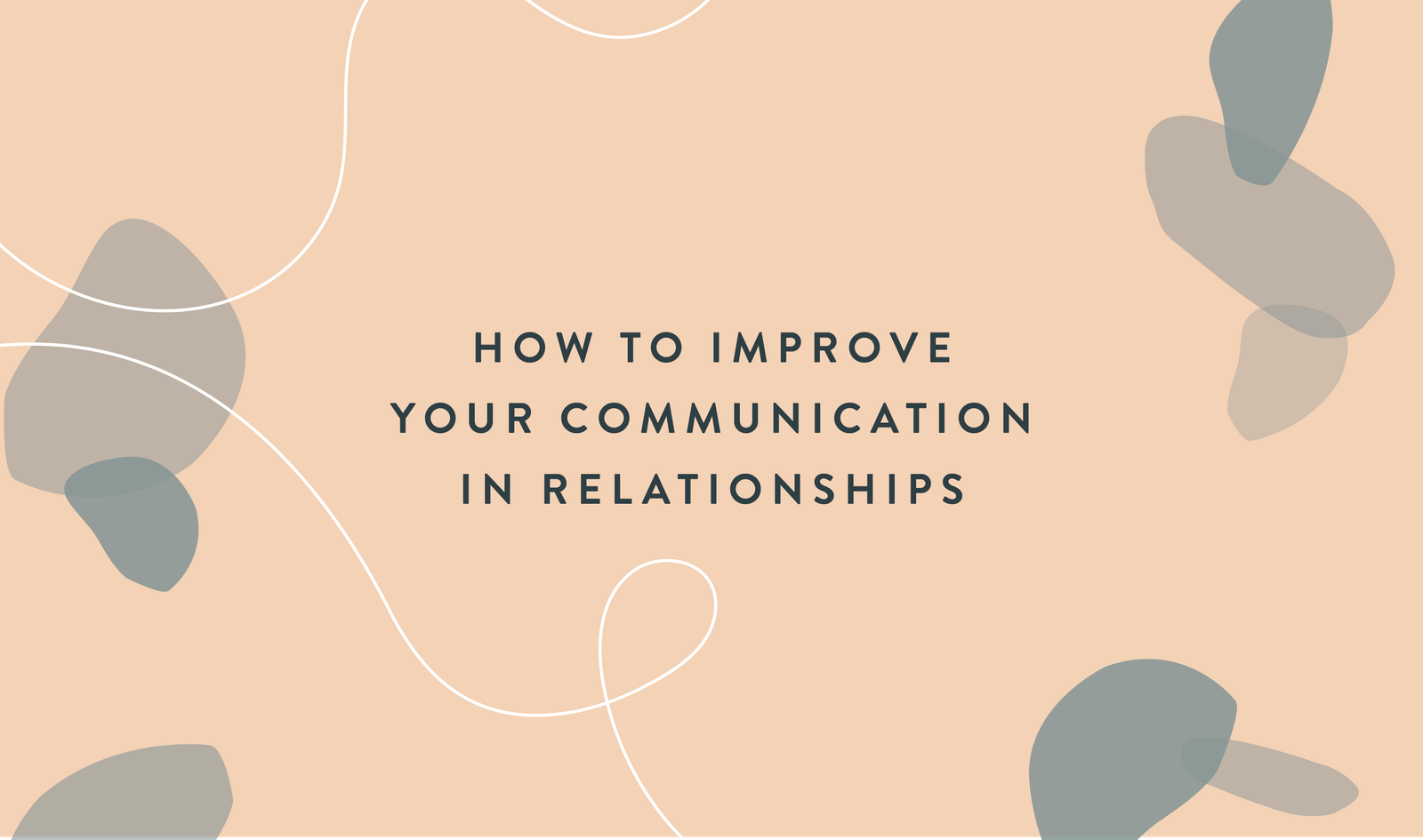
Communication is one of the core foundations of a healthy relationship. Relationships are built on the ability to effectively communicate through verbal and non-verbal skills. In order to develop strong communication skills, it takes patience, time and effort to find what works best for you, your partner, or the person you are communicating with!
RELATIONSHIPS ARE BUILD ON THE ABILITY TO EFFECTIVELY COMMUNICATE THROUGH VERBAL AND NON-VERBAL SKILLS.
Non-Verbal Communication
Non-verbal communication involves body language and facial expressions to communicate emotions. Body language such as your posture, the crossing of arms, and whether you are facing towards or away from someone, are all examples of ways you communicate through your body. Additional non-verbal cues include eye contact and silence.
One way to use non-verbal cues while communicating with your partner, is to stay present and use your eye contact and silence to show that you are listening to what they are saying. This will show your partner your willingness and ability to approach and perceive issues in a nonjudgmental way. By doing so, you will also show that you’re open, mindful and respectful.
When you are being present in the conversation, try to also be honest and sincere. Try to also avoid diminishing their feelings by saying they’re overreacting and instead do your best to view the situation from the other person’s perspective.
Verbal Communication
Verbal communication involves communicating with words to express yourself and your feelings. At times of confusion or conflict, verbal skills are essentials for every relationship as this helps avoid guessing, reading someone’s mind or misunderstanding what someone is trying to communicate. The following are suggestions on different ways to successfully communicate how you feel in a way that allows for your partner or the recipient to actually hear what you are saying.
WHEN YOU EXPLAIN HOW YOU FEEL BY SAYING THE WORD, “I”, YOU ARE MORE LIKELY TO BE HEARD BY THE PERSON THAT YOU ARE COMMUNICATING WITH.
The Tools
Using “I” Statements
“I” statements are great to describe your feelings. When you explain how you feel by saying the word, “I”, you are more likely to be heard by the person that you are communicating with. An example of this would be, “I feel sad when you tell me you’re coming home at 8pm but you don’t get home until 9pm.” Using these types of statements can make a drastic difference in a conversation. I suggest you try this next time you’re attempting to resolve an issue and need to express yourself.
Express Yourself Clearly & Calmly
As you express yourself, be thoughtful, make an effort to think about what you want to say before you speak. Doing this, will help prevent impulsivity and encourage you to be more conscious and aware. Stay polite, don’t be aggressive, and share your thoughts in a warm and clear vocal tone. Refrain from being manipulative as this confuses and frustrates your partner, because the goal of manipulation is control. Eventually, your partner will resent the control you are trying to have in the conversation and will stop listening and actively contributing.
Focus Your Attention
Stay focused on the issue at hand. If your partner replies outside your point of concern hear them out and go back to the main issue of your concern. This way both of you will stay on the main points of your current discussion.
Timing is Key
It’s best to deal with the issue as soon as it arises as this will prevent the build up of tension and communication will most likely be easier. However, before starting the conversation, make sure to select a good time for the both of you so that the atmosphere is calm rather than angry. Feeling angry will likely interfere in getting your point across and may result in you saying something you will regret.
As you try to apply these skills it may feel unnatural or awkward, be gentle with yourself. It’s not easy doing so at first, but gradually with time and practice, you will start seeing results. For more information on building stronger communication skills with your partner or other people in your life, feel free to reach out!

